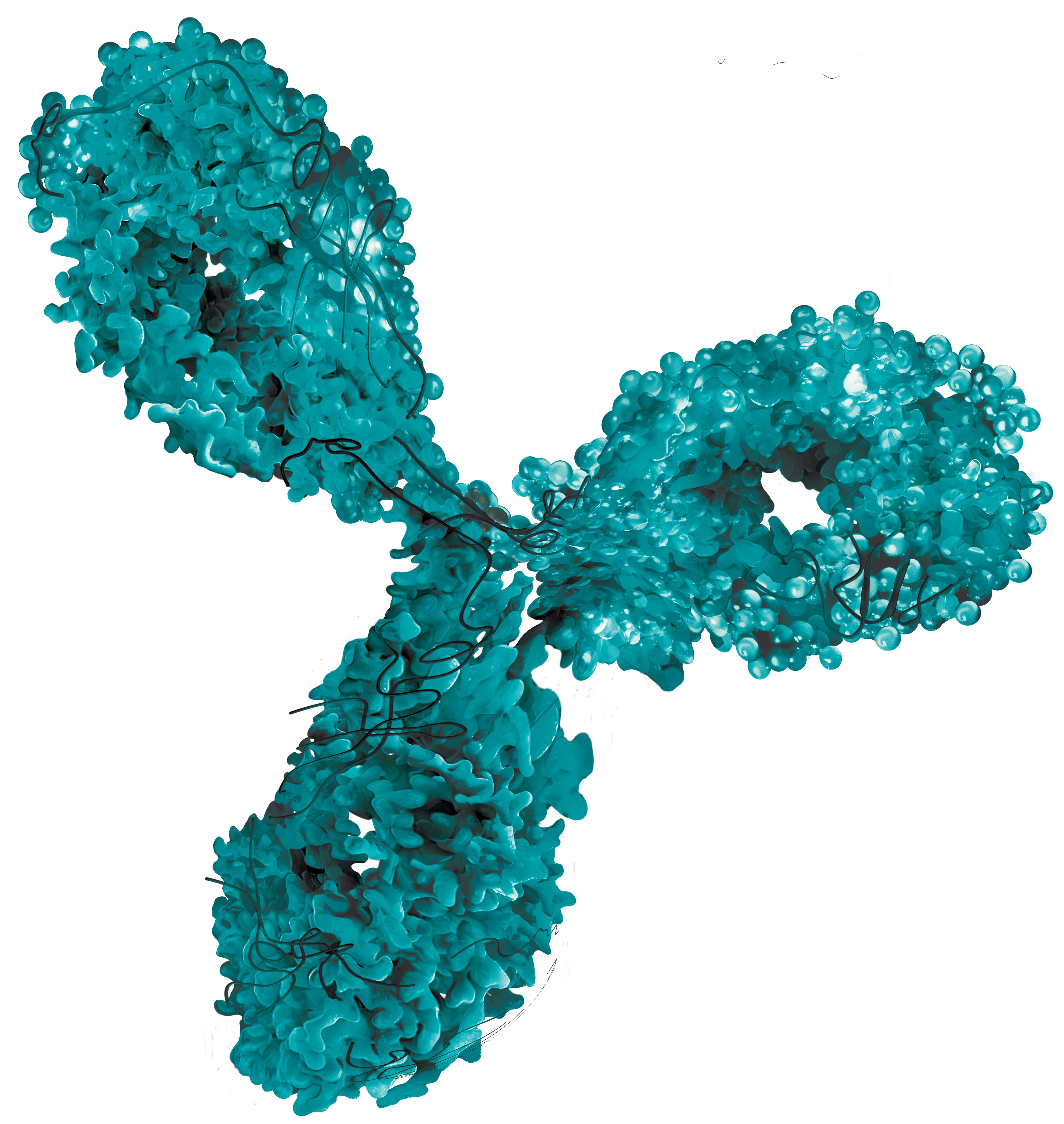Computational Framework Developed to Evaluate Monoclonal Antibody Capture Chromatography Platforms
Researchers at Clemson University have developed a computational framework that integrates commercial software components to perform customizable technoeconomic feasibility analyses of monoclonal antibody capture chromatography platforms.
Researchers at Clemson University in Clemson, South Carolina, USA have developed a computational framework for the techno-economic analysis of monoclonal antibody capture chromatography platforms. The research was published in the Journal of Chromatography A (1).
monoclonal antibody blue green 3d rendering isolated on white background | Image Credit: © Mirror-images - stock.adobe.com

The framework integrates commercial software components to perform customizable technoeconomic feasibility analyses. The use of multiple software packages overcomes the shortcomings of each to provide a detailed simulation that can be used for sensitivity analyses and optimizations.
The simulation framework incorporated dynamic models for the affinity chromatography step that were validated with experimental breakthrough curves. The results were integrated with an Intelligen SuperPro Designer process simulation for the evaluation of key performance indicators of the operations.
Affinity chromatography is a technique used to separate molecules in a mixture based on their affinity for a specific ligand attached to a stationary phase. The sample is passed through a column containing the stationary phase, and the molecules that have an affinity for the ligand bind to it, while the rest of the sample passes through. The bound molecules are then eluted from the column using a different buffer solution, resulting in a purified sample of the desired molecule. Affinity chromatography is commonly used in the production of monoclonal antibodies and other biopharmaceuticals.
As proof of concept, the framework was used to perform a sensitivity analysis and optimization for a case study in which the researchers sought to compare membrane and resin chromatography for disposable and reusable batch capture platforms. Two membranes and one resin were selected for the capture media, which yielded six process alternatives to compare.
The objective functions were set to be cost of goods, process time, and buffer utilization. The results of the optimization of these process alternatives were a set of operating conditions that display tradeoffs between competing objectives.
The researchers conclude that the framework can handle multiple variables and objectives, and it is adaptable to platforms with different chromatography media and operating modes. Additionally, the framework is capable of providing ad hoc analyses for decision making in a specific production context.
The ability to evaluate the techno-economic feasibility of different alternatives is crucial in the biopharmaceutical industry, where flexible production processes capable of responding to sudden increases in demand are indispensable. The framework used for this analysis must quantify the possible benefits in terms that are relevant for the application.
Process Analytical Tools (PAT), such as mathematical models and computational simulation tools, can be used to analyze the impact of changes on the process prior to implementation. The models used to simulate the process must depict the physical behavior of the operation accurately and account for the impact of different variables. Finally, the framework needs to provide parameter values for optimal operation conditions to enable a comparison of design alternatives that maximize process performance.
Given the multiple requirements for the technoeconomic study, there is no standalone software capable of delivering the desired results. The computational framework developed by the researchers provides a valuable tool for the analysis and optimization of monoclonal antibody capture chromatography platforms.
Reference
(1) Romero, J. J.; Jenkins, E. W.; Osuofa, J.; Husson, S. M. Computational framework for the techno-economic analysis of monoclonal antibody capture chromatography platforms. J. Chromatogr. A 2023, 1689, 463755. DOI: https://doi.org/10.1016/j.chroma.2022.463755
New Study Uses MSPE with GC–MS to Analyze PFCAs in Water
January 20th 2025Scientists from the China University of Sciences combined magnetic solid-phase extraction (MSPE) with gas chromatography–mass spectrometry (GC–MS) to analyze perfluoro carboxylic acids (PFCAs) in different water environments.